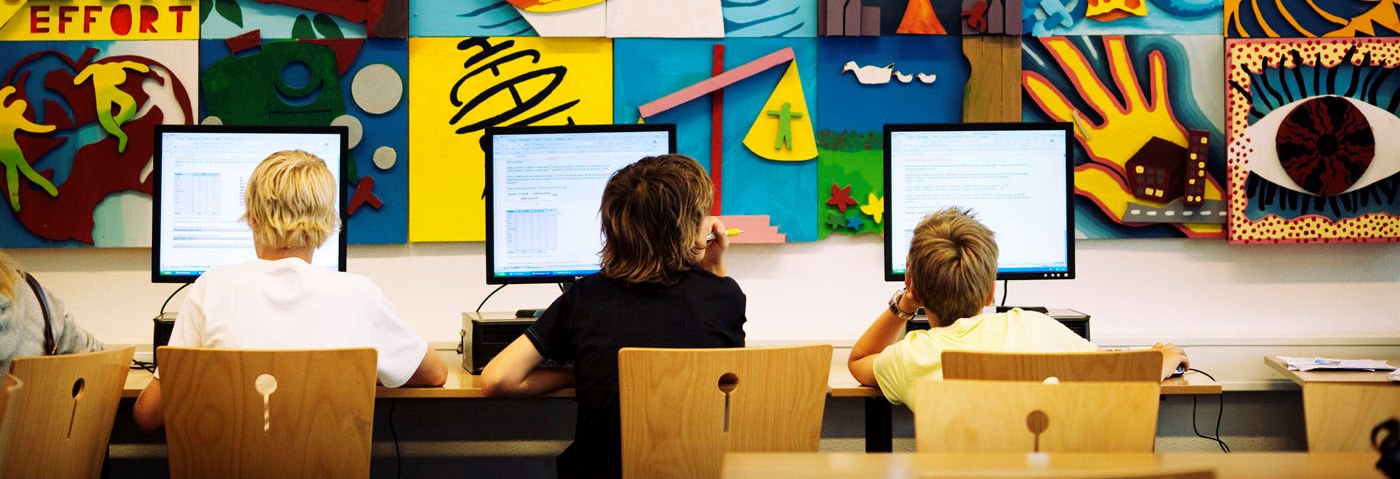
Complaints procedure
Our schools feel responsible for achieving good education and a pleasant educational climate. Should, despite our efforts, things go differently than expected, stakeholders can address the school. The method and procedure for this is described in a complaints procedure. The complaints procedure can be found here. See also the flowchart of the complaints procedure.
In conversation at school
The basic principle is that the problem is initially solved at the school itself. In most cases, problems can be dealt with appropriately in contact between parents, students, staff and management.
In an occasional case, a solution cannot be found and you may wish to file a complaint. This can be done with the Executive Director of the Foundation or with the National Education Complaints Committee (Landelijke Klachtencommissie Onderwijs (LKC)).
Filing a complaint
If you submit a complaint, the Executive Director may handle the complaint itself or decide to refer the complainant to the LKC. If the Executive Director handles the complaint itself, it will first check whether there are still possibilities to reach a solution at school level. In most situations, resolving complaints at source is the best way to move forward together.
Treatment of the complaint
If this possibility is insufficient, the Executive Director will deal with the complaint by applying the adversarial procedure. The procedure for this is described in the complaints procedure. Thereafter, the Executive Director decides whether or not the complaint is (partially) founded and may make a recommendation or indication of measures to be taken by the school.
National Education Complaints Commission
If you submit a complaint to the National Education Complaints Committee, it will also first examine whether a solution is possible at the level of the school or the Executive Director. The LKC also offers the possibility of resolving a complaint through mediation. If this is not decided or it does not lead to a solution, the LKC can take up the complaint and organise a hearing. Further information on this procedure can be found at www.Onderwijsgeschillen.nl or via the link in the complaints procedure. The LKC's decision is an advice to the Executive Director, after which the Executive Director decides whether it shares the LKC's opinion and what measures it will take.
Confidential person
Every school within Het Rijnlands has at least one internal confidential person*. The school guide states who this person is and how they can be reached. If a student, parent or staff member experiences undesirable behaviour and, for whatever reason, cannot or does not want to contact the teacher, mentor or immediate superior, they can contact the internal confidential person. The internal confidential person is the point of contact for students and staff in situations involving undesirable (online) behaviour. Specifically, this concerns (suspicions of) bullying, discrimination, (sexual) harassment, (verbal) aggression, violence and integrity violations. A confidential person supports, makes suggestions for solutions and possibilities and refers on.
Anyone is free to go to the external confidential person instead of the internal confidential person. The external confidential person can guide the reporter/complainant through the complaints procedure and refer to support from other external parties. The external confidential persons at our Foundation are affiliated with Centrum Vertrouwenspersonen Plus. The contact details are given below.
*For employees of the central office and school management, the external confidential person acts as the 'internal' confidential person.
Practical information
- A complaint can be made to the Executive Director by email to:
bestuur@rijnlandslyceum-csb.nl- In this e-mail, please include your name, address and e-mail address.
- Description of the complaint and date/period to which it relates.
- Other requirements can be found in the complaints procedure.
- Filing a complaint with the National Education Complaints Commission can be done via:
Stichting Onderwijsgeschillen:
www.onderwijsgeschillen.nl
T: 030 - 280 95 90
E: info@onderwijsgeschillen.nl
- External confidential persons:
Centrum Vertrouwenspersonen Plus(CVP Plus)
www.centrumvertrouwenspersonenplus.nl
T: 070 260 00 32
E: info@cvp-plus.nl
